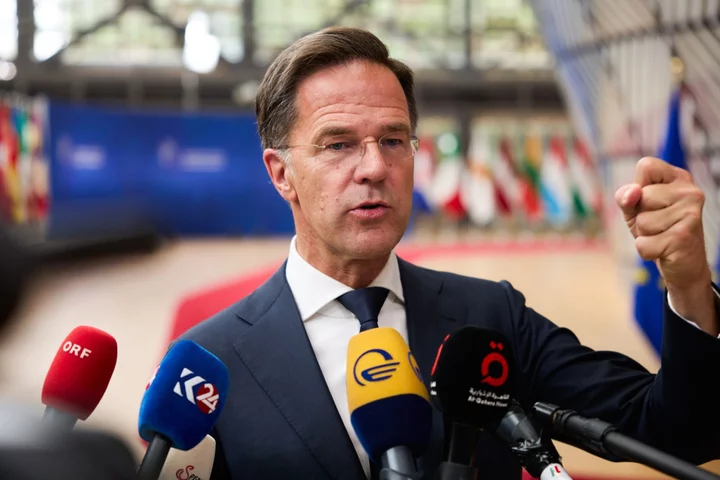Dutch Prime Minister Mark Rutte’s government collapsed over a migration policy dispute, setting up the Netherlands for its second general election in little more than two years.
Rutte, who has led the Dutch government since 2010, failed to marshal an agreement on Friday within his four-party governing coalition to limit an influx of asylum seekers. Rutte’s VVD party has been putting pressure on their leader to limit the number of arrivals, while the progressive D66 party and the smaller Christian Union are strong supporters of providing safe harbor to refugees and their families.
Dutch voters last elected a new parliament in March 2021 and the next election is likely in the fall, the ANP news agency reported. Yet some polls suggest Rutte’s party remains the most popular, opening up the possibility that he’ll seek to cobble together a another government for a fifth term.
Rutte, 56, is the longest-serving prime minister in Dutch history and the most-senior leader in the European Union along with Hungary’s Viktor Orban. He’s been in office since 2010.
But Rutte this year posted the worst Senate election result of his premiership as the Farmer-Citizen Movement, or BBB, became the biggest party in the Dutch upper house.
The upstart party rose on the back of drastic measures imposed by the government to comply with EU rules on reducing nitrogen pollution and protect nature after intensive farming devastated biodiversity in the Netherlands, the world’s second-largest exporter of agricultural products.
Thousands of farmers protested for months against the measures which they fear will put some of them out of business.
For all his challenges, Rutte is famous for surviving political crises and can count on his personal popularity with voters.
The conflict among the coalition parties, which formed a government 18 months ago, escalated when Rutte proposed on Wednesday to limit the right to family reunions for refugees from war zones to 200 people per month after a period of two years — demands that were unacceptable to D66 and the Christian Union.
In an Ipsos poll in June, Rutte’s VVD led with a projected 28 seats, compared with 23 for BBB. By contrast, a June poll by I&O put BBB ahead with 28 seats and VVD at 22.
Rutte’s tenure as prime minister has spanned coalitions with parties ranging from the conservative Christian Union to D66. He endured a scandal over childcare subsidies, which tipped thousands into poverty and triggered the collapse of his third cabinet, and has battled with high inflation and an energy crisis since last year.

